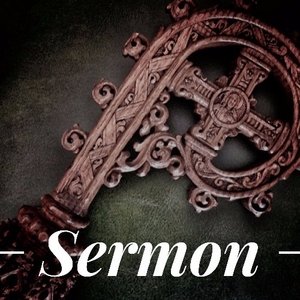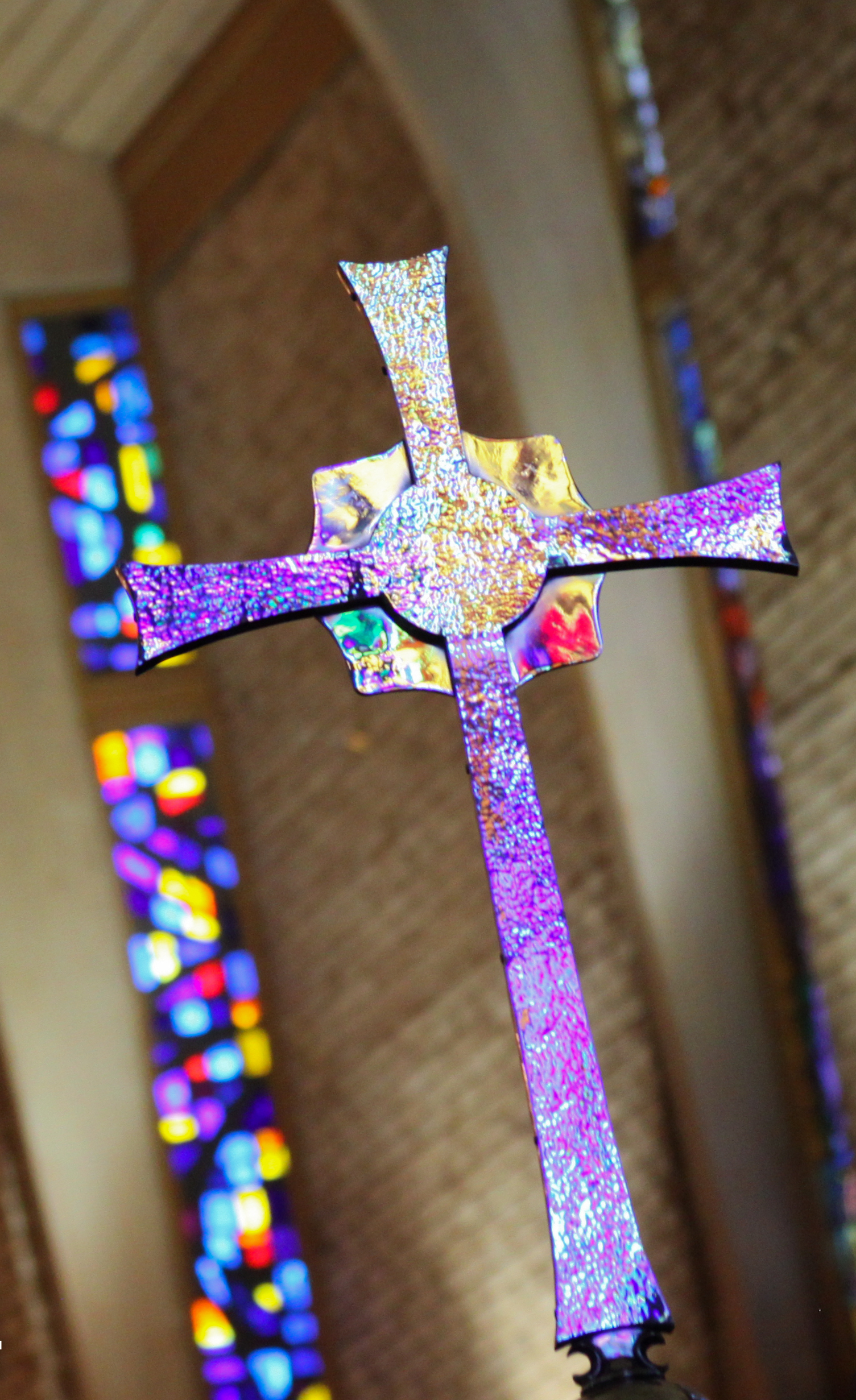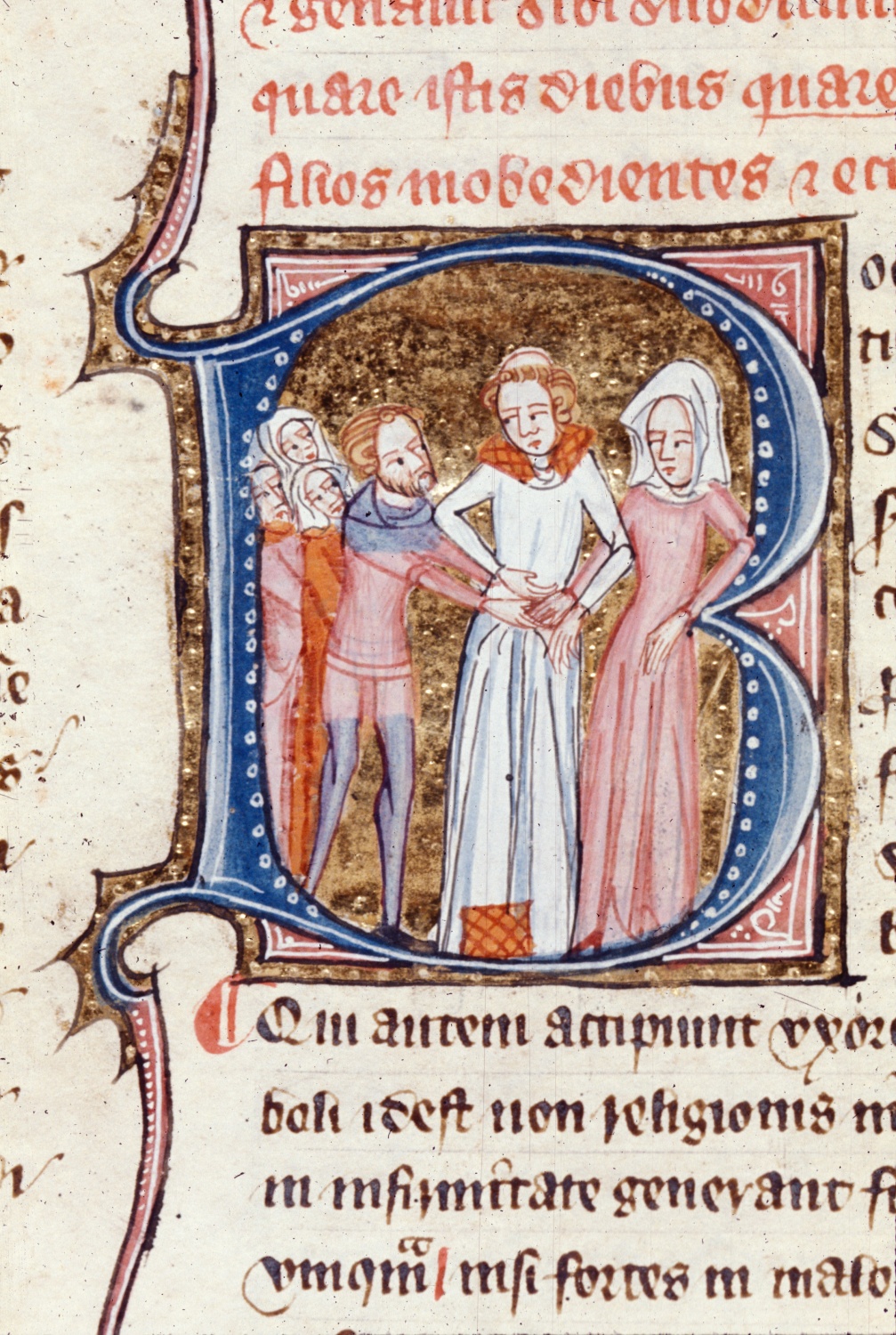Proper 27 (32) (November 10, 2019) – Audio
For he is God not of the dead, but of the living; for to God all are alive. Amen.

It is perhaps not so common now, but for centuries in the Christian world a common criticism leveled at someone was that they are being “Pharisaical.” Even today, in some circles, you will hear people criticize other kinds of Christians as being “like the Pharisees.” This derives, of course, from the fact that in the Gospels the primary sparring partner of Jesus was the Pharisees. They would come up to him as he was teaching and try and trip him up with questions about the interpretation of Scripture or how the Law should be lived out in their lives. They would ask him questions like, “What is the greatest commandment” or “What must I do to inherit eternal life.” Sometimes they were trying to trick Jesus, to show that he didn’t really know or understand the Law. But sometimes, they probably were just trying to understand Jesus. to figure out who he was and what he did know.
The Pharisees were learned men, who might come from any class or group, but who studied diligently Scripture and preserved the traditions of how the Law was to be interpreted and applied in the world they lived in. These are called the “traditions of the elders” and these folks were, more or less, the predecessors to the rabbis who would later write down these traditions in the Mishnah and the Talmud. Their focus, however, on the Law and these traditions earned them the reputation of being legalistic. Lawyers in the most pejorative sense.
They were viewed as focused on the right way of doing things rather than doing the right things. So when someone is accused of being “Pharisaical,” they are charged with being so focused on the do’s and don’t’s so that they have lost sight of the faith, what we believe and why we do the things we are called to do.
What is ironic in our reception of the Pharisees is that theologically, in terms of many key beliefs, Jesus was in their camp not that of the Sadducees. The central issue is at the heart of today’s Gospel: the resurrection of the dead. The Pharisees believed and taught that God would ultimately bring justice to this world, physically raising all to eternal life. The Sadducees did not believe in the resurrection of the dead and were therefore they were sad, you see? (That was one of my father’s favorite puns.) So in today’s Gospel, the Sadducees are the ones trying to trip up Jesus, asking him who in this complicated scenario of levirate marriage would be married to whom.
I won’t bore you with a detailed explanation of why brothers are repeatedly marrying their sister-in-law. Suffice it to say it is what we call “levirate marriage” (from the Latin levir for “husband’s brother”) and it was a biblical law designed to ensure that the family’s name and property lived on. The point of this episode, however, is Jesus’ affirmation that there is the resurrection of the dead. Jesus affirms the Pharisee’s view that when this life is over, those who believe will not “die anymore, because [we] … are children of God, being children of the resurrection.”
This past Sunday we commemorated All Saints’ Day and we remembered our loved ones who have died before us. We read out the names of many and in our hearts and prayers we remembered many more. This past year, on Maundy Thursday, my father Charles died. He lived a good and relatively long life, hitting 82 years, before this frail body wound down. Most of you know that nearly seven years ago our son Mack died. My father struggled to come to terms with that, but he loved Mack’s service and told us that he wanted that service for his own. I was raised Presbyterian and Mack’s service that Dad liked so much was simply “The Burial of the Dead” from The Book of Common Prayer. Dad loved it because that service is focused not upon the recollection of the past, but on our sure and future resurrection. That was Dad’s confidence. That was his goal in life. When he was in the hospital, at one point he asked the nurse, “Do you know Jesus?” Because that’s what Dad most wanted, was for people to know Jesus. He never said, “Do you know you’re going to hell?” Dad said, “Do you know Jesus?” Because Dad wanted them to know Jesus, because that would mean they would know eternal life. And that was what he wanted, for his funeral service to be focused on the resurrection that was his hope. It was his hope, but it did not take away his, our grief.
In the months following Mack’s death I would not say that I had a crisis of faith, but I certainly felt a general malaise. I was writing about Mack’s death and my faith in his/our resurrection, and at the same time there was no doubt that I felt a pall over me. Then we decided to go to my parents’ church for Easter. The reading for the sermon was a portion from 1 Cor. 15, a passage I knew well, but when the pastor read it and began preaching, it was as if I was hearing it for the first time.
“For if the dead are not raised, then Christ has not been raised. If Christ has not been raised, your faith is futile and you are still in your sins. Then those also who have died [are asleep] in Christ have perished. If for this life only we have hoped in Christ, we are of all people most to be pitied.” (1 Cor. 15:16-19).
This is the heart of our faith: Christ has died, Christ has risen, Christ will come again. Did I believe it or not?
Everything hangs upon the resurrection of Christ. With his resurrection, everything changed. Except the world we live in. It is still a broken world. We still live in a world where a child can be taken by a blood infection, or an accident on a playground, where cancer comes out of nowhere. Where you feel called and you’re doing the work that you know God has called you to do, and suddenly your boss says, I’ve got to cut your position. And you have no income, no job. That’s the world we still live in. And yet it has been changed and transformed by the resurrection of Jesus.
We still live in a broken world with all the consequences of the fall, but now we can affirm that the human spirit will be raised. Believing in the resurrection should mean believing that this world is not all that there is. Yes, the risen Christ in our lives means that we are to love the most unlovely, but it also means that there is something more to live for than just this world. Yes, I realized all over again, I do believe. I still wept, I still weep, because Mack was still gone, ripped from us in such a cruel if quiet way, but I wept because it also means that I know I shall go to him.
This was not a crisis of faith, but rather the life of faith. This is the ebb and flow that can come at any point in one’s life. The death of a loved one, especially such an untimely death, naturally brings us back to these moments of asking ourselves, “Do I really believe?” When you find yourself in this situation, and in all likelihood we all do at some point, remember that to question God, to be angry, to be disappointed, to feel abandoned is not showing a lack of or a weak faith. It is the sign of resilience and resistance.
We are resilient in that we are questioning, recognizing that not everything is clear cut and we are willing to dive into the murky, real world of our emotions, experience, and faith. We are being resistant by not accepting simple answers, including just saying, “Well, there can be no God.” Instead, we ask again, “Do I believe? Why do I believe? What do I believe?” In that moment, I accepted God’s grace all over again. I confessed that I do believe in the resurrection; I am not to be pitied because I share with my son and my father in God’s eternal kingdom.
I confess and believe this to be true because that is the Good News of Christ. I confess and I believe this to be true, not because I want it to be so but because it is the gospel, the good news of Christ. He has risen from the dead! He died for our sins and rose again. As the first of us all, so that we all might rise and live eternity eternally. So all of us, all the Saints listed on the page that we will read out and all those for whom we’ve lit candles. We shall all live together every parent and child, husband and wife, and lots and lots of brothers in law.
I don’t pretend to understand how it will all work. As NT Wright points out, “We must remind ourselves yet once more that all Christian language about the future is a set of signposts pointing into a mist.” They are telling us the truth, they are pointing us in the correct direction, but they do not provide us with clear and focused images of all that lies ahead for us. Our physics of this world does not apply and the Bible does not bother us with details. Instead Jesus promises us that we are “children of the resurrection.”
A wonderfully apt analogy came from a childhood friend of mine whose son, Logan, had died almost a year before Mack. Sherry’s son had been diagnosed with a brain tumor and Logan battled with cancer for eighteen months before his body succumbed to the disease. Logan loved all things cars, including the Pixar movie Cars. Already by the age of three Logan could identify the make just from seeing the back corner of a car. So, each year, on his birthday, his mom Sherry picks up a toy car (he particularly liked Corvettes and cars with flames painted on them) and puts it on his grave. This year (2019) she wrote about a small bit of grace that occurred as she was driving from the store after picking up some new cars that she knew he would like. She wrote,
“As I drove down the road toward the house a minute later, ‘Life is a Highway’ — the theme to the original Cars movie — came on the radio. I was initially disappointed that it wasn’t the Rascal Flatts version that played during the movie, but then I had a thought: sure, it’s a different version, but it’s still the same song with the same words and the same melody. And somehow, that truth made not knowing who Logan would be today a little less painful. It’s like he was saying ‘it’s still the same song, mom, just like I’m still me.’ Different, yes, but still with the same basic underpinnings that made him who he was (and still is).”
What a wonderful analogy! The melody remains, the essence is still the same, she recognized the song immediately, just as we will recognize our boys immediately. And yet–and yet they are so much more now than they were while here on the first earth. We are now the basic melody played out on the keyboard, but then we shall be a full orchestration! We will all be so much more, as children of the resurrection. For “he is God not of the dead, but of the living; for to God all of US are alive.”
Amen. ✠





One thought on “Children of the Resurrection”